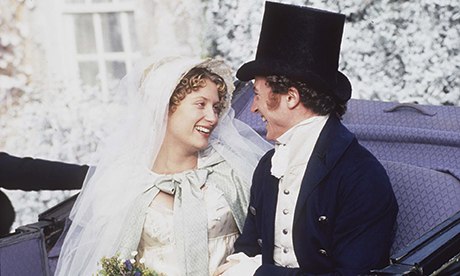
Is it possible to be too happy? When faced with such an existential question I usually go to my favourite psychologist, Jane Austen. "'Tis too much … by far too much … Oh! Why is not everybody as happy?" says Jane Bennett on first seeing her sister after Mr Bingley had proposed in Pride and Prejudice. Jane is a caring person, very mindful of others' feelings and at this moment she is very happy indeed. But Jane is aware that others around her may not be as happy and that it may be possible that she is too happy for them.
We may sometimes make a brave show of pretending not to care what others think, but who would not, like Jane, be mindful if their mood was substantially different, was too happy, for others in their group? The things that make us happiest are our social relationships – happiness is a good friend. And the more empathetic we are to others the better friendships we are likely to have. This means we need to be able to relate to others' states of being when they are less than happy and if we are unable or unwilling to do this then that is what I would call being too happy.
Jane, of course, has nothing really to worry about. She may have feared being too happy, but others are so happy for her that her happiness is neither too much for them nor is it for us.
We might also be so happy that we are not worrying enough about everyday concerns. When Jane's father, Mr Bennett, makes a joke about the personalities of Jane and Bingley he could be hinting at the disadvantages of too much happiness brought about by being so easy-going. "You are each of you so complying, that nothing will ever be resolved on; so easy, that every servant will cheat you; and so generous, that you will always exceed your income."
Psychologists from the University of Virginia in 2007 seem to be of the same mind as Mr Bennett. Their paper suggests that, although happiness generally leads to success, higher levels of happiness do not lead to more success, at least not in a material sense. They found that people with the highest level of happiness are the most successful in terms of close relationships, but those with slightly lower levels of happiness are the most successful in terms of income, education and political participation. This suggests that in order to strive we need to feel a lack of some kind.
Emily Esfahani Smith used the phrase: "There's more to life than being happy."
She was examining research carried out at Stanford University in the US looking at the differences between leading a happy life and a meaningful one.
Of course, there are many overlaps, but there are also distinct differences between the two groups. People who emphasised having a happy life more than a meaningful one tended on the whole to be takers who lived mainly in the present, whereas those who valued meaning over happiness tended to be givers who also thought about the past and the future as well.
Jane Austen again: this is Anne Elliot, the heroine of Persuasion, thinking about her sisters-in-law, the Musgrove sisters: "Anne always contemplated them as some of the happiest creatures of her acquaintance; but … she would not have given up her own more elegant and cultivated mind for all their enjoyments."
Yes, Austen definitely understood that there is more to life than being happy.

